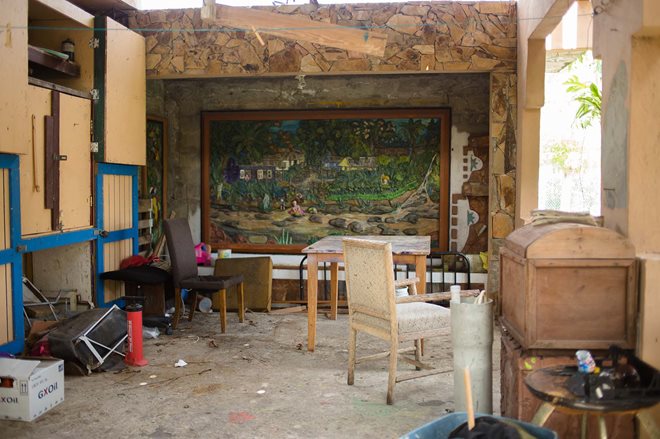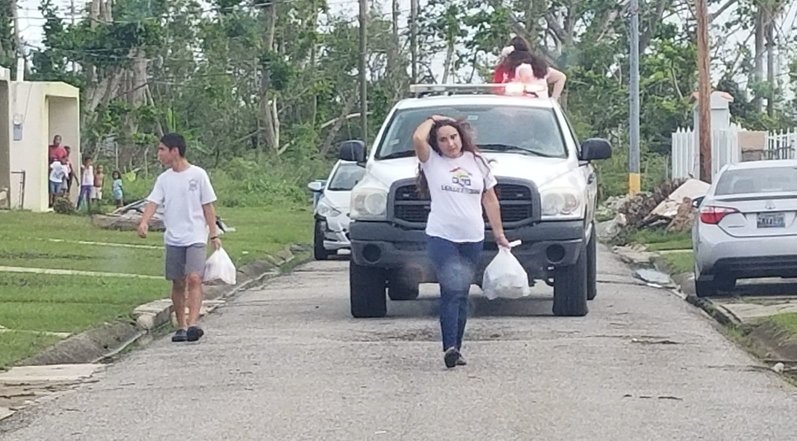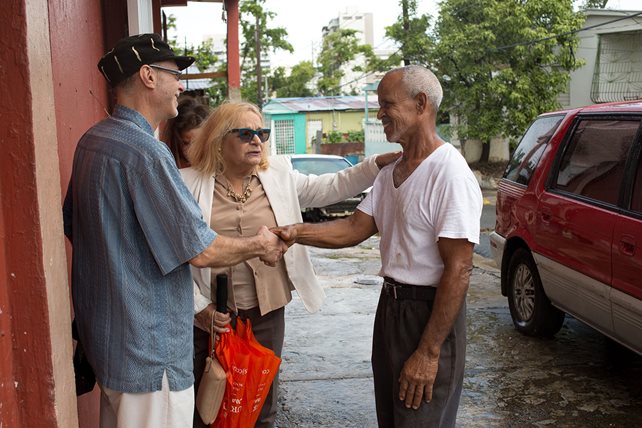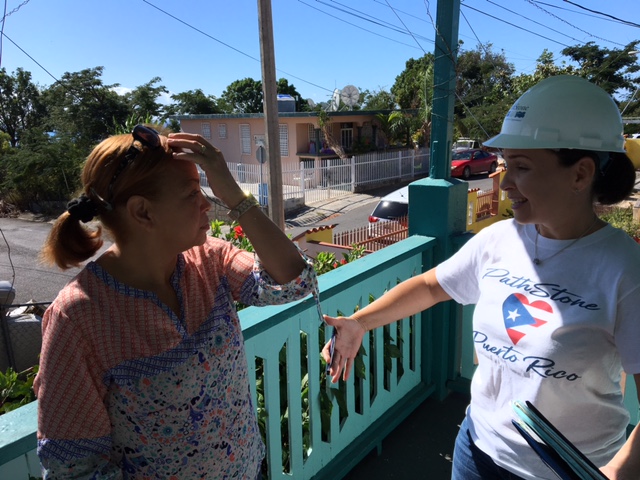
It’s been almost six months since Hurricane Maria slammed into Puerto Rico, and 10-15 percent of residents still do not have electricity. The federal Transitional Sheltering Assistance program, which was set to expire March 20 (now extended until May 14), still is housing nearly 10,000 affected individuals in hotels and motels in 41 states. And even before the hurricane, the majority of residents lived with water that violated health standards set by the U.S. law. Some people are leaving, for good; an exodus of more than five percent of the population is predicted by year-end. And yet, in June, hurricane season will be here again. I interviewed the representative of three NeighborWorks network members doing work on the ground about what they’ve learned, what they need and what gives them hope.
I know you are still in the midst of recovery, but what have you learned as a result of Hurricane Maria about disaster preparedness and response?

We now know how important it is to prepare in advance for the worst by equipping families with emergency kits—bags they keep at the ready with water, canned food and milk, flashlights, batteries, first-aid supplies, cleaning supplies, toothbrushes and soap, etc. In the first days after the hurricane hit, there were more than 500 people in shelters and almost no one had shampoo, soap or deodorant. A lot of people fled their homes with only their shoes and clothing. The next hurricane season is only three months away! We’re saying now that residents need to have one bag per person ready or two (or a larger one) for the whole family.
Homes also have to be better protected. We’ve started conducting home-construction and compliance workshops [to make sure they can withstand severe storms]. For example, cables can tie down roofs to make sure they don’t fly off. We’ve done four workshops so far in rural areas and people have been receptive; they are aware their attitude has to change. Construction has been too informal. Right now, though, we still have a lot of homes without roofs and we’re focusing on getting them repaired, on families who aren’t eligible for FEMA help or when the money they get isn’t enough.
Blanca Velez, executive director, Puerto Rico Neighborhood Housing Services: We are in the Caribbean, you know, and we have a lot of storms; we are prepared for that. But for this type of a big storm that affects the entire island, we were not. Everybody was affected, even me and my family, even all of the usual helpers. One of the things I learned is to take care of the people next to you first—your family, neighbors and staff. Like they say on airplanes, put your own oxygen mask on first. I live in a condominium with 158 families and before the storm, I never knew all of them. I just said hi and good morning in the elevator. But we came together. We took trees out, reopened streets, served coffee and made food. Everyone did something, even the elderly and kids; I led a workshop on financial capability [focusing on immediate priorities]. From that, a group of people became leaders who said that if this happens again, we will do the same. Now we have a plan.
María Rodríguez-Collazo, director of housing programs, PathStone Corp.: As an organization, like everyone else in Puerto Rico, we were not prepared. In the future, we need to have generators and satellite phones at the ready so we can get back to normal operations sooner. We need to have water-conservation systems and alternative energy sources, such as solar panels in multi-family developments, especially in remote areas. We need a Plan B as well as Plan A. And that will mean working with different funders to allow that to happen.
We also learned we need to negotiate with banks to build in time for us to review the insurance policies that come along with the mortgages residents take out when buying a home. It’s often not enough for storm damage like we are seeing. And we have to incorporate more information into homebuyer education as well. Some families have no mortgage so they don’t have insurance either. We need to educate families to keep paying for a policy, even though they may never need it.
What does Puerto Rico need most right now? From NeighborWorks America, from fellow network members, from us as individuals?
Elizabeth: Obviously, we need money. There is so much we need, like helping families with no income who must fix their roofs and replace furniture and appliances. A lot of families are still sleeping on wet mattresses. So, we’ve been giving them $500 vouchers using our grant from NeighborWorks America. But we also need other types of resources, like contacts—for instance, with financial institutions that might offer support.
We also need help with putting our collective heads together to plan for the future. The local government hasn’t been very effective in doing that. There is no master plan in high places. Nonprofits are all doing their own plans. Maybe if we join together we can have one master plan. But we need capacity-building training. Another, broader problem is the difficulty residents have in getting loans when they don’t have titles for their land. The original landowner may have been dead for 80 years, for instance, or be in Europe or South America.

Maria: We need more funding, of course. But we also need help building awareness of the necessity and power of nonprofits working on the ground in communities. The big money is going to the various levels of government. Nonprofits can play a critical role in getting funds directly to families who need relief. We have the employees, the infrastructure, the programs.
We also need help keeping attention on Puerto Rico, now that we are no longer in the news. One way to do that on a personal level is to come to Puerto Rico. We need your tourism money: Stay in our hotels, eat in our restaurants. In the beginning, I said don’t come here; I can’t share water with you that is a challenge to obtain for me and my family. But now it’s different. We need you! Come!
What challenge most keeps you up at night?
Elizabeth: I worry the most about not serving as many families as we need to. There are thousands of people who still need help. Meanwhile, a lot of residents have left the island or will leave as a result. We need their tax money and their business to support local stores, etc.
Blanca: Hurricane season is coming again and the people are not prepared. FEMA gave households $4,000, but a roof alone is $6,000. Each family needs a total of $13,000-$15,000. Instead of spending money on TV and other promotions like the government is doing, let’s use the money to finish repairing and preparing homes. In just four days, I can secure a house.

What makes you optimistic, despite the challenges?
Elizabeth: Just waking up every morning and coming to the office and seeing how hard my staff works makes me optimistic. And also the smiles of the families we help; they are so resilient!
Blanca: I believe we can change the impossible to possible. Give us the resources, and we can do it.
Maria: Everyone across PathStone is so compassionate. I know I am in the right organization. And as a people, we are strong. If Puerto Ricans can’t overcome a challenge, no one can.

